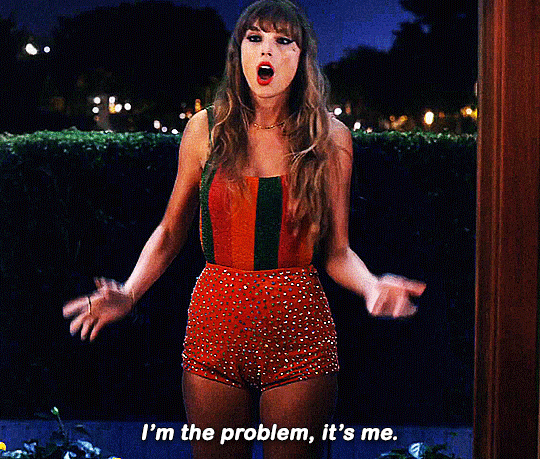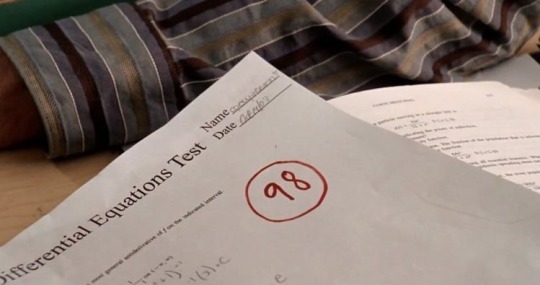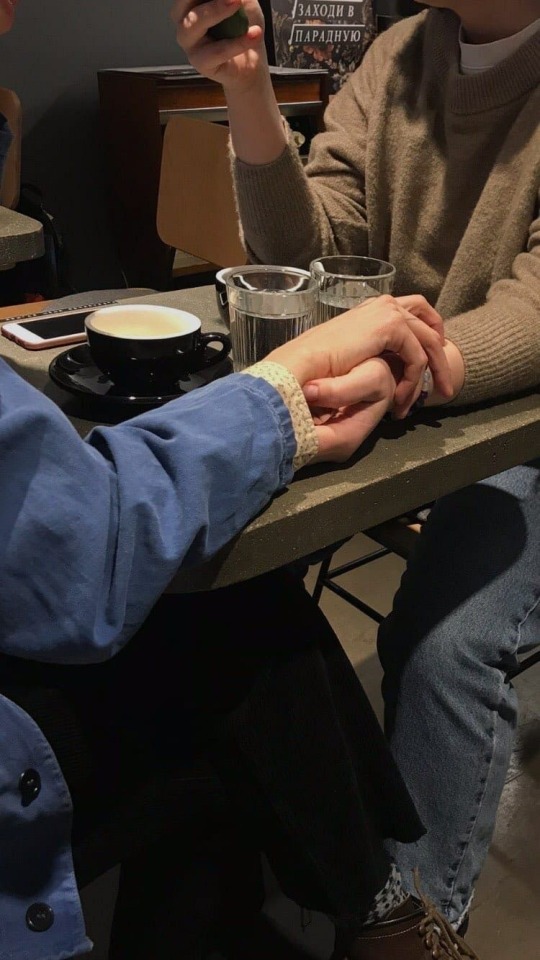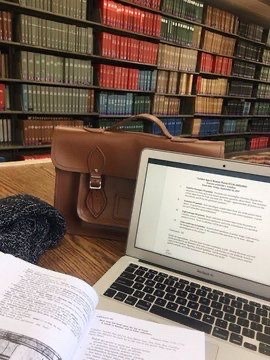Text

*sobbing* “I’m not crying! You’re crying!”
Also huge shoutout to fans taking these pictures of her on tour *insert picture of Phoebe bridgers bowing to taylor at that awards ceremony*
#taylor swift#swifties#eras tour#i love you taylor#taylor nation#taylorlurking#love you to the moon and to saturn#never grow up#midnights#you’re on your own kid#the great war#labryrinth#karma taylor swift#karma
15 notes
·
View notes
Text
Taylor Swift has done a lot for fanfic titles on ao3

262 notes
·
View notes
Text

POV: you’re a burned-out former gifted kid trying to pick which midnights song is your favourite
176 notes
·
View notes
Text
Taylor singing: “and she looks so pretty, driving in your Benz,” is so gay I can’t-
#vigilante#vigilante shit#midnights#gaylor swift#taylor swift#question…?#anti hero#karma#13#swifties#bi#lesbian#gay#lgbtqplus#with prosecco in it
54 notes
·
View notes
Text


Not joe alwyn wearing the same outfit as emma d’arcy in the negroni interview
11 notes
·
View notes
Text
I need Emma D’Arcy to play Mr. Darcy in a queer adaptation of Pride and Prejudice
someone make this happen
#emma darcy#emma d’arcy#house of the dragon#rhaenyra targaryen#pride and prejudice#mr darcy#jane austen#someone make it happen#negroni#prosecco#with prosecco in it#stunning
78 notes
·
View notes
Text
Me mid Ap Calc test:
“It’s probably so weird to aliens how we greet each other by shaking our hands rapidly”
1 note
·
View note
Text
book dedications are so tender here is this piece of art i made for an audience of thousands. but really every word is for you
114K notes
·
View notes
Text
does anyone else remember grass. the warmth of the sun
66K notes
·
View notes
Text







gender neutral studyspo, cause we all deserve to do great in our life <3
credits to - pintrest & owners
2K notes
·
View notes
Text
Oh my gosh. I just found this website that walks you though creating a believable society. It breaks each facet down into individual questions and makes it so simple! It seems really helpful for worldbuilding!
102K notes
·
View notes
Text
When reading fanfic keep in mind that for professional literature:
Short story: under 7,500
Novelette: between 7,500 and 17,500
Novella: between 17,500 and 40,000
Novel: over 40,000
Fics over 40k are literally a novel written and shared for free. If you have written a 40k+ fic, you have literally written a novel.
95K notes
·
View notes
Text
Words to describe facial expressions
Absent: preoccupied
Agonized: as if in pain or tormented
Alluring: attractive, in the sense of arousing desire
Appealing: attractive, in the sense of encouraging goodwill and/or interest
Beatific: blissful
Black: angry or sad, or hostile
Bleak: hopeless
Blinking: surprise, or lack of concern
Blithe: carefree, lighthearted, or heedlessly indifferent
Brooding: anxious and gloomy
Bug eyed: frightened or surprised
Chagrined: humiliated or disappointed
Cheeky: cocky, insolent
Cheerless: sad
Choleric: hot-tempered, irate
Darkly: with depressed or malevolent feelings
Deadpan: expressionless, to conceal emotion or heighten humor
Despondent: depressed or discouraged
Doleful: sad or afflicted
Dour: stern or obstinate
Dreamy: distracted by daydreaming or fantasizing
Ecstatic: delighted or entranced
Faint: cowardly, weak, or barely perceptible
Fixed: concentrated or immobile
Gazing: staring intently
Glancing: staring briefly as if curious but evasive
Glazed: expressionless due to fatigue or confusion
Grim: fatalistic or pessimistic
Grave: serious, expressing emotion due to loss or sadness
Haunted: frightened, worried, or guilty
Hopeless: depressed by a lack of encouragement or optimism
Hostile: aggressively angry, intimidating, or resistant
Hunted: tense as if worried about pursuit
Jeering: insulting or mocking
Languid: lazy or weak
Leering: sexually suggestive
Mild: easygoing
Mischievous: annoyingly or maliciously playful
Pained: affected with discomfort or pain
Peering: with curiosity or suspicion
Peeved: annoyed
Pleading: seeking apology or assistance
Quizzical: questioning or confused
Radiant: bright, happy
Sanguine: bloodthirsty, confident
Sardonic: mocking
Sour: unpleasant
Sullen: resentful
Vacant: blank or stupid looking
Wan: pale, sickly
Wary: cautious or cunning
Wide eyed: frightened or surprised
Withering: devastating
Wrathful: indignant or vengeful
Wry: twisted or crooked to express cleverness or a dark or ironic feeling
104K notes
·
View notes
Text
“Here’s my life. My husband and I get up each morning at 7 o’clock and he showers while I make coffee. By the time he’s dressed I’m already sitting at my desk writing. He kisses me goodbye then leaves for the job where he makes good money, draws excellent benefits and gets many perks, such as travel, catered lunches and full reimbursement for the gym where I attend yoga midday. His career has allowed me to work only sporadically, as a consultant, in a field I enjoy. All that disclosure is crass, I know. I’m sorry. Because in this world where women will sit around discussing the various topiary shapes of their bikini waxes, the conversation about money (or privilege) is the one we never have. Why? I think it’s the Marie Antoinette syndrome: Those with privilege and luck don’t want the riffraff knowing the details. After all, if “those people” understood the differences in our lives, they might revolt. Or, God forbid, not see us as somehow more special, talented and/or deserving than them. There’s a special version of this masquerade that we writers put on. Two examples: I attended a packed reading (I’m talking 300+ people) about a year and a half ago. The author was very well-known, a magnificent nonfictionist who has, deservedly, won several big awards. He also happens to be the heir to a mammoth fortune. Mega-millions. In other words he’s a man who has never had to work one job, much less two. He has several children; I know, because they were at the reading with him, all lined up. I heard someone say they were all traveling with him, plus two nannies, on his worldwide tour. None of this takes away from his brilliance. Yet, when an audience member — young, wide-eyed, clearly not clued in — rose to ask him how he’d managed to spend 10 years writing his current masterpiece — What had he done to sustain himself and his family during that time? — he told her in a serious tone that it had been tough but he’d written a number of magazine articles to get by. I heard a titter pass through the half of the audience that knew the truth. But the author, impassive, moved on and left this woman thinking he’d supported his Manhattan life for a decade with a handful of pieces in the Nation and Salon. Example two. A reading in a different city, featuring a 30-ish woman whose debut novel had just appeared on the front page of the New York Times Book Review. I didn’t love the book (a coming-of-age story set among wealthy teenagers) but many people I respect thought it was great, so I defer. The author had herself attended one of the big, East Coast prep schools, while her parents were busy growing their careers on the New York literary scene. These were people — her parents — who traded Christmas cards with William Maxwell and had the Styrons over for dinner. She, the author, was their only beloved child. After prep school, she’d earned two creative writing degrees (Iowa plus an Ivy). Her first book was being heralded by editors and reviewers all over the country, many of whom had watched her grow up. It was a phenomenon even before it hit bookshelves. She was an immediate star. When (again) an audience member, clearly an undergrad, rose to ask this glamorous writer to what she attributed her success, the woman paused, then said that she had worked very, very hard and she’d had some good training, but she thought in looking back it was her decision never to have children that had allowed her to become a true artist. If you have kids, she explained to the group of desperate nubile writers, you have to choose between them and your writing. Keep it pure. Don’t let yourself be distracted by a baby’s cry. I was dumbfounded. I wanted to leap to my feet and shout. “Hello? Alice Munro! Doris Lessing! Joan Didion!” Of course, there are thousands of other extraordinary writers who managed to produce art despite motherhood. But the essential point was that, the quality of her book notwithstanding, this author’s chief advantage had nothing to do with her reproductive decisions. It was about connections. Straight up. She’d had them since birth. In my opinion, we do an enormous “let them eat cake” disservice to our community when we obfuscate the circumstances that help us write, publish and in some way succeed. I can’t claim the wealth of the first author (not even close); nor do I have the connections of the second. I don’t have their fame either. But I do have a huge advantage over the writer who is living paycheck to paycheck, or lonely and isolated, or dealing with a medical condition, or working a full-time job. How can I be so sure? Because I used to be poor, overworked and overwhelmed. And I produced zero books during that time. Throughout my 20s, I was married to an addict who tried valiantly (but failed, over and over) to stay straight. We had three children, one with autism, and lived in poverty for a long, wretched time. In my 30s I divorced the man because it was the only way out of constant crisis. For the next 10 years, I worked two jobs and raised my three kids alone, without child support or the involvement of their dad. I published my first novel at 39, but only after a teaching stint where I met some influential writers and three months living with my parents while I completed the first draft. After turning in that manuscript, I landed a pretty cushy magazine editor’s job. A year later, I met my second husband. For the first time I had a true partner, someone I could rely on who was there in every way for me and our kids. Life got easier. I produced a nonfiction book, a second novel and about 30 essays within a relatively short time. Today, I am essentially “sponsored” by this very loving man who shows up at the end of the day, asks me how the writing went, pours me a glass of wine, then takes me out to eat. He accompanies me when I travel 500 miles to do a 75-minute reading, manages my finances, and never complains that my dark, heady little books have resulted in low advances and rather modest sales. I completed my third novel in eight months flat. I started the book while on a lovely vacation. Then I wrote happily and relatively quickly because I had the time and the funding, as well as help from my husband, my agent and a very talented editor friend. Without all those advantages, I might be on page 52. OK, there’s mine. Now show me yours.”
—
Ann Bauer, ““Sponsored” by my husband: Why it’s a problem that writers never talk about where their money comes from”, http://www.salon.com/2015/01/25/sponsored_by_my_husband_why_its_a_problem_that_writers_never_talk_about_where_their_money_comes_from/ (via angrygirlcomics)
This is so important, especially for people like me, who are always hearing the radio station that plays “but you’re 26 and you are ~*~gifted~*~ and you can write, WHERE IS YOUR NOVEL” on constant loop.
It’s so important because I see younger people who can write going “oh yes, I can write, therefore I will be an English major, and write my book and live on that yes?? then I don’t have to do other jobs yes??” and you’re like “oh, no, honey, at least try to add another string to your bow, please believe that it will not happen quite like that”
It’s so important not to be overly impressed by Walden because Thoreau’s mother continued to cook him food and wash his laundry while he was doing his self-sufficient wilderness-experiment “sit in a cabin and write” thing.
It’s so important because when you’re impressed by Lord of the Rings, remember that Tolkien had servants, a wife, university scouts and various underlings to do his admin, cook his meals, chase after him, and generally set up his life so that the only thing he had to do was wander around being vague and clever. In fact, the man could barely stand to show up at his own day job.
It’s important when you look at published fiction to remember that it is a non-random sample, and that it’s usually produced by the leisure class, so that most of what you study and consume is essentially wolves in captivity - not wolves in the wild - and does not reflect the experiences of all wolves.
Yeah. Important. Like that.
(via elodieunderglass)
80K notes
·
View notes
Text
My phone has died.
I don’t know if this is freedom
Or some kind of problem.
When i go out to the garden
The flowers all seem to know
I’m not there to take pictures
And let me in on their gossip.
Apparently this one bee is very rude.
Meanwhile indoors an apple with a bite out of it
Keeps appearing and disappearing.
259 notes
·
View notes
Text
Concept: I finish school. The job I work isn’t my dream job but I enjoy doing it greatly still. It pays enough to cover everything I might need. My bills are never overdue. Money is not a thought in my head. I have a place to live. So do my dogs. It is nice and warm, I have some plants, my bookshelves are full, my sheets are always clean. There is time to read at the end of a day. I read a lot. Thinking is a good thing. I meet up with friends regularly, old and new. They love me. We make memories. I have nothing to be ashamed of. I travel a few times a year, always different places. The places I see steal my breath away. The people I meet teach me of life. They are good. There is no war. The sea calls to me and pay visit. I am independent. I am content.
509K notes
·
View notes